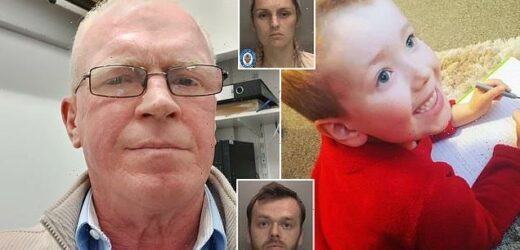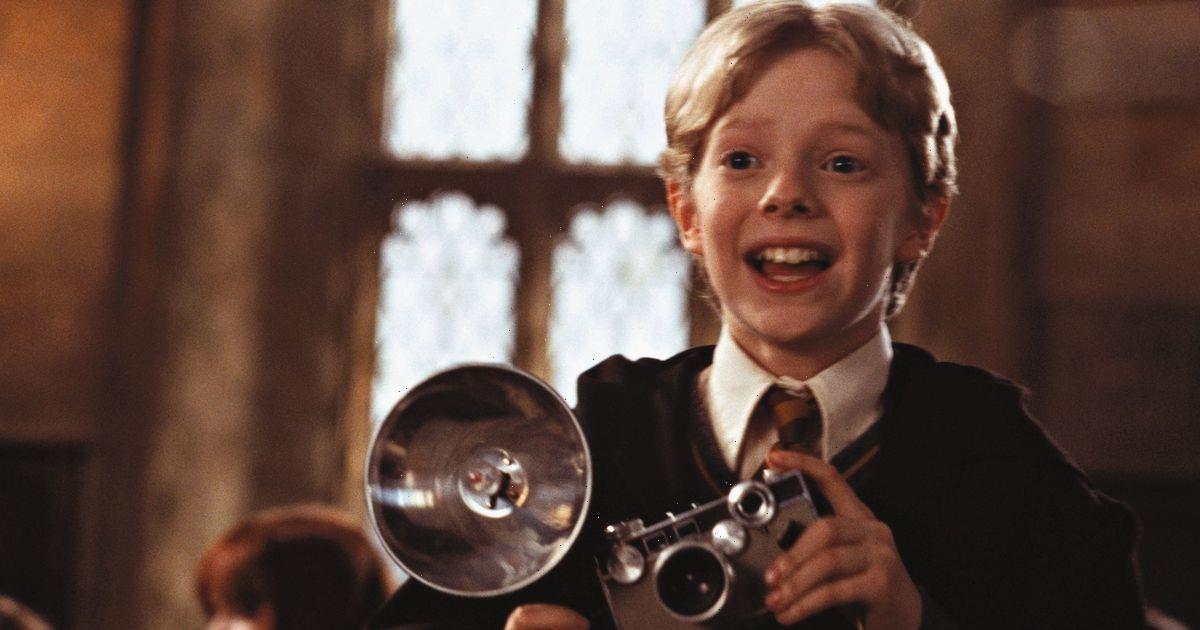‘Alarm bells were ringing all around’: Grandfather of murdered Arthur slams authorities for ‘not acting on’ concerns from family and even neighbours – as report claims social worker lost notes from visit before trial began
- Arthur Labinjo-Hughes suffered ‘unsurvivable’ brain damage before his death
- Stepmother Emma Tustin and father Thomas Hughes were jailed last week
- Grandfather Peter Halcrow claims warnings from relatives were ‘not acted on’
The grandfather of tragic Arthur Labinjo-Hughes said ‘alarm bells were ringing all around’ over the six-year-old’s horrific abuse and that safety concerns raised by relatives and neighbours were ignored.
In a court case which broke hearts across the country, it was revealed that Arthur had suffered ‘unsurvivable’ brain damage and a total of 130 injuries were found all over his body before his murder.
He had also been tortured, poisoned with salt and forced to stand on his own for up to 14 hours a day.
The boy’s stepmother, Emma Tustin, was jailed last week for at least 29 years for his murder, while his father, Thomas Hughes, was sentenced to 21 years for manslaughter. ,
It emerged in court that Arthur was seen by social workers during the first national lockdown just two months before his death in Solihull, West Midlands, in June last year. But they concluded there were ‘no safeguarding concerns’ and closed the file.
It was also reported today that social workers lost crucial notes about the case from a visit before the trial began.
Now Arthur’s maternal grandfather, Peter Halcrow, has claimed other warnings from family members were ‘not acted on’.
Tragic Arthur had suffered ‘unsurvivable’ brain damage and a total of 130 injuries were found all over his body before his murder
Arthur’s maternal grandfather, Peter Halcrow, has claimed other warnings from family members were ‘not acted on’
He told BBC Radio Four’s Today programme: ‘It’s not as if it was a passing-by thing.
‘People were flagging up there were problems and social services got involved and said there was nothing to worry about. Hey-ho three or four months later, the boy’s dead.
‘They must have a tick list to do, the house is clean and tidy, blah, blah, blah, so they won’t worry about it.
‘If alarm bells are ringing all around, with neighbours giving statements, surely there must be someone or some kind of body which can step in and say we’re taking that child out of that situation.
‘The father is not man enough to do that himself, someone has to say this child is suffering and needs help and I guess that’s what social services are for.’
Mr Halcrow also said Arthur was ‘loved and well looked after’ by his other grandparents before Tustin and Hughes got together, who he said he hoped would never be released from prison.
‘I wouldn’t give them the time of day and I wouldn’t want them to see the light of day ever again,’ he added.
‘[Arthur] had his whole life ahead of him, you know? He could have enjoyed all the things we have enjoyed or messed up in our lives.’
It comes as it was reported that a social worker’s notes – made following a visit to Arthur’s home – were lost just days before the murder trial was due to begin.
The social worker eventually found them midway through proceedings at Coventry Crown Court, according to the Sun.
The boy’s stepmother, Emma Tustin (left), was jailed last week for at least 29 years for his murder, while his father, Thomas Hughes (right), was sentenced to 21 years for manslaughter
She was questioned over the notes in court, to which she replied: ‘I take my job extremely seriously.
‘If at any point there were any safeguarding concerns I would have acted immediately to safeguard those children.’
Meanwhile, Boris Johnson has backed plans for ‘Arthur’s Law’, which would see anyone who carries out the murder of a child sent to prison indefinitely.
The pledge followed a warning from a senior MP that tens of thousands of ‘ghost children’ are at risk of abuse after failing to return to school following the lockdowns.
Robert Halfon, chairman of the Commons education committee, said 100,000 pupils were ‘lost in the system’ and therefore vulnerable to cruelty at home.
Source: Read Full Article






